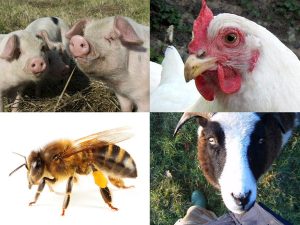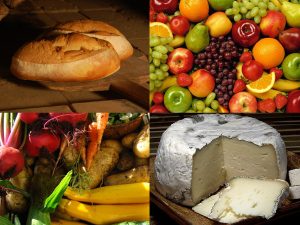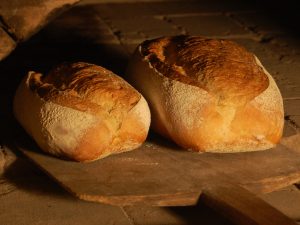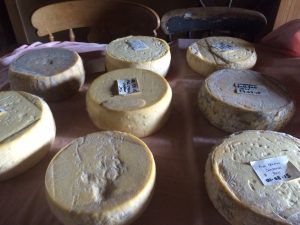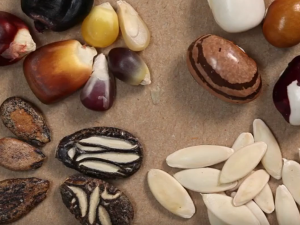There’s something seriously wrong with the way most of our food is produced and sold. The corporate sector is gaining control of more and more of global food production, shifting the focus from nutrition, flavour and nature towards profit and profit only. Who really believes that giant food conglomerates are concerned with ‘feeding the world’ rather than gaining a larger market share and maximising returns to shareholders?
It’s been shown time and time again that smallholdings produce more food per hectare than large monocultures. Here’s one example, and here’s another. But we’ve been tricked into believing that only large-scale, mechanised agriculture that involves toxic chemicals and genetic modification has a chance of feeding a burgeoning population, when exactly the opposite is true. GM, for example, is a blatant attempt by corporations to control more of the food sector by incorporating technologies into it that can’t be developed or owned by individuals or communities – only by corporations.
I’m not talking here about whether GM is safe for humans or ecology. This may or may not be the case, but we can get bogged down in scientific debate, when corporate ownership is the more urgent issue here, I think. Take food production out of corporate hands and we can begin to have non-partisan discussions about the safety of GM and pesticides without the corrupting influence of corporate ‘research’, lobbying, PR and media. Some scientists will step up to the plate repeatedly to show how scientifically illiterate those who oppose GM on safety grounds are. But those scientists are either politically illiterate or simply pro-corporate, because their income depends on them being pro-corporate.
But of course the corporate agricultural system is environmentally damaging. Soil and biodiversity are being lost, and if this continues, there is no future for agriculture. No amount of corporate technology can feed a world in which soil and ecosystems are constantly degrading.
But some people are fighting back, and you can join them. Their toolbox includes community-supported agriculture, farmers’ markets, fruit and veg boxes and other direct sales, as well as allotments, smallholdings, gardens, micro-breweries, bakeries, dairies etc.
They’re coming together at the annual Real Farming Conference in Oxford, and you’re invited. The 2016 conference is taking place at Oxford Town Hall on the 6th and 7th of January. Here’s a flavour.
Here’s the programme.
Here’s where to get tickets.
And here’s a bit of history.
In 2009 the agricultural writer Graham Harvey (now of Pasture Promise TV) invited Colin Tudge and Ruth West (founders of the Campaign for Real Farming) to help establish a new kind of farming conference.
It was to bring together practising, mud-on-the-boots farmers and growers with scientists and economists, and activists and lawyers, and everyone else with a serious interest in food and agriculture. The idea was and is to ask the really big questions – like what kind of farming do we really need and why; but also to focus at least equally on the minutiae of practice – and to see who, right now, in Britain and the world at large, is truly farming and marketing and cooking in ways that the world really needs, and others can emulate.
So in January 2010, the Oxford Real Farming Conference was launched in the late mediaeval library attached to the University Church of St Mary’s in Oxford’s High Street. In part we conceived the ORFC as the antidote to the official, Oxford Farming Conference, which for the past 60 years has presented the Establishment view and of late has encouraged farmers to focus on high tech, and trust to the global market.
But the point of the ORFC is not to attack the status quo but to look ahead — to ask what the world really needs, and what’s possible, and to show what really can be done. Always on the agenda, or thereabouts, is the dream of Agrarian Renaissance: to restore agriculture and all that goes with it to its proper place at the heart of the economy, and indeed of all our lives. Agriculture at present, and farmers, are marginalised. The thing that matters most for humankind is low on the global agenda.
From the outset, the ORFC had a buzz. Farmers and scientists and activists and all the rest really did come together, and in several cases known to us and doubtless many more that we don’t know about, they established new working relationships and began new initiatives. So we knew we had to do it all again – and the 2016 ORFC will be our 7th. Sessions over the years have ranged from the intricacies of soil microbiology to new kinds of marketing, micro-dairies, mob grazing and agroforestry; from the joys and tribulations of crofting, to the kind of economic structure we need to support the kind of farming and marketing that we need, to the underlying morality of farming – why some ways of doing things are better than others; and many more.
We are also exploring new ways of structuring farms – with groups of like-minded people running various quasi-independent but linked farming and related enterprises in the same space, to form a cooperative or a partnership that is more efficient biologically, more robust economically, and more convivial, than any one person can achieve alone.
The ORFC has grown year by year. In 2016 we expect 650 delegates, and we hope that half of them are farmers (which in Britain, is a very good turn-out). 2016 also sees us settle for the second year into our new home at Oxford’s splendid Town Hall.





